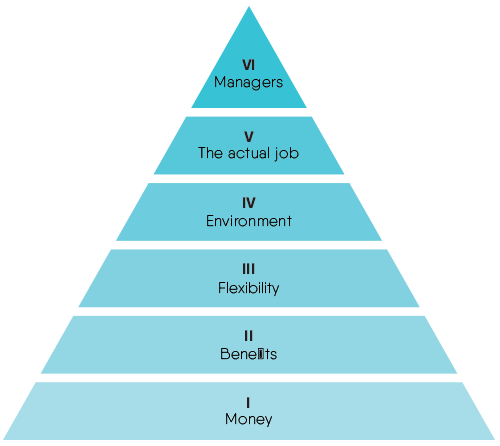The worlds of Influencers and Analysts have never collied more than they are right now in the HR industry. Most of this has to do with the popularity of Influencer Marketing that has taken off in the past decade, and like most things in HR, we are now just catching up with the marketing trend.
Traditionally, in the HR space, companies selling products, technology, and services only really cared about two things: 1. What do our clients think of us, and 2. What do the “Analysts” think of us?
What’s an Analyst?
Every industry has them. These are basically individuals who work for organizations like Deloitte, Gartner, Forrester Research, IDC, and hundreds of boutique firms specializing in specific parts of the HR ecosystem. The individuals spend a great deal of time understanding the landscape of a specific function in HR, the technology, the processes, what works and what doesn’t, etc. Then your organization pays their organization a great deal of money for this expert knowledge.
The hope is, using this expert Analyst knowledge will ultimately help you save time, money, and missteps because you’ve hired a firm of experts to help you make the right decisions. Many of these experts have never actually worked a day in HR, but hold MBAs and such. Some of these people are some of the smartest people I’ve ever met, and if you listened to them, they could truly help you. Some are idiots working for a big firm.
Examples of Analyst I admire: William Tincup, Madeline Laurano, Trish McFarlane, George LaRocque, Ben Eubanks, Kyle Lagunas, John Sumser, Holger Mueller, Jason Cerrato, Josh Bersin, etc.
This will then beg the question of well, then, what’s an Influencer?
Influencer marketing has been around for a hundred years, but Kim Kardashian is the queen of modern day influencers. I’m famous! You see me talking about or using this product. You buy this product. That’s really the backbone of influencer marketing. I mean Kimmy D would never steer you wrong, would she?
An Influencer is anyone in an industry that a measurable amount of people are listening to, that will the influence their buying behavior. I write a blog post on some product that I’m using in my own shop. It’s super awesome! You go out, look at it, and decide to buy it and use it with your team. You’ve been influenced.
Most of the influencers in the HR industry are current or former practitioners, they’ve lived your life. Some are super smart and have the resume to back it up. Some are complete idiots. Any idiot can have a blog (I’m a great example!). Most influencers, like an analyst, have a specialty, something they’re better at than other stuff. Some influence full time, but most hold down ‘real’ jobs to pay the bills. So, they probably don’t have the time to deep dive into the industry, as you’ll see with analysts.
Examples of Influencers I admire: Kris Dunn, Dawn Burke, Carmen Hudson, Robin Schooling, Jason Lauritsen, Laurie Ruettimann, Jennifer McClure, Sharlyn Lauby, Steve Browne, Sabrina Baker, Joey Price, Mary Flaukner, Jessica Merrell, Janine Truitt, etc. (there’s really too many to name!)
Many of these people are HR Famous! They have worked hard to create an audience who for the most part listens to what they have to say.
You also have people that fall into this strange middle ground of Influencer-Analysts types that have no name. Maybe they started out as an influencer, then became an Analyst, or maybe they were an Analyst who became popular and started influencing. Examples in this camp are folks like: Josh Bersin, Jason Averbook, Sarah Brennen, Trish McFarlane, Ben Eubanks, etc.
(BTW – All of these people you should connect to! )
So, who has the most impact on your Brand? Influencers or Analysts?
This is not an easy question to answer because like almost anything it depends on a lot! We all know of a certain product we love and regardless of the influence or what some expert is telling us, we will just buy it because we love it!
We also have an untold number of products and services we buy because someone we trust told us about it, and because we trust them, we go buy it.
If you’re a large enterprise level product or service, basically selling to companies that have more than 5,000 employees, you better make nice with the Analyst community! They tend to have the ear of more enterprise buyers then you’ll typically see from influencers. I doubt very highly the CHRO of Google is reading this blog! (but I know the CPO of GM is!)
What I see is companies selling to enterprise usually work with both Analyst and Influencers. They want to ensure their message is heard across the buying community, so they don’t miss out on a potential buyer, and they have the money to do both.
Companies selling to under 5,000 employees and it starts to get a little harder to determine the impact of Analysts. I mean how many HR and Talent shops in Small to Medium sized businesses have the money to pay for Analysts Research? Not many! If you run an HR shop of a 1500 person company, you do not have $50,000 to hear what the best ATS is! The ATS you buy won’t even cost $50K!
Behind the scenes, most analysts understand their biggest impact in on the enterprise buyer, and because that’s where the money is, that’s exactly where they want to be! If you have buyers across small, medium, large, and enterprise markets, it then becomes a more difficult decision on how you use Influencer marketing.
The real answer to the question above is you engage with the analyst and influencers that have the most positive impact to selling your product. Unfortunately, most organizations have little or no idea if either side is having an impact to selling their stuff.
Who has the juice?
I call someone who has ‘real’ influence as having the “juice”. If you have the ‘juice’ you have the ability to influence real buying decisions on a regular basis. Laurie Ruettimann tells you to go out and buy this new great HR product, and that organization will see a measurable sales increase directly tied to the links in her posts. She’s got juice!
I wrote about an HR Tech company a few months ago after a demo and a month later they sent me a bottle of gin because they landed a six-figure deal directly from my mentioning them in a post. That’s gin and juice! 😉
Most people who call themselves influencers in the HR space have little or no juice. Usually, because they just don’t have a large enough, sustained audience who is listening. They might be 100% correct in their recommendations and insight, but not enough people are listening to move the buying needle.
I love what the folks are doing over at HRMarketer because they are actually showing organizations who have the juice and who doesn’t. I can tell you I have the juice and say I’m the #1 Influencer in the HR marketplace, but the reality is, anyone can say that! HRMarketer is actually giving data behind those words to let people know where the real juice is.
The truth around all of the analyst vs. influencer chatter is that you’ll find people in both groups who can help you, and people in both groups who are complete idiots and have no value. The best thing to do is build a relationship with both, find out who moves your needle and aligns with the messaging you’re trying to get out, and then measure. Eventually, you’ll find the right mix that will work for your organization.



 Level I – Money – cash!
Level I – Money – cash!